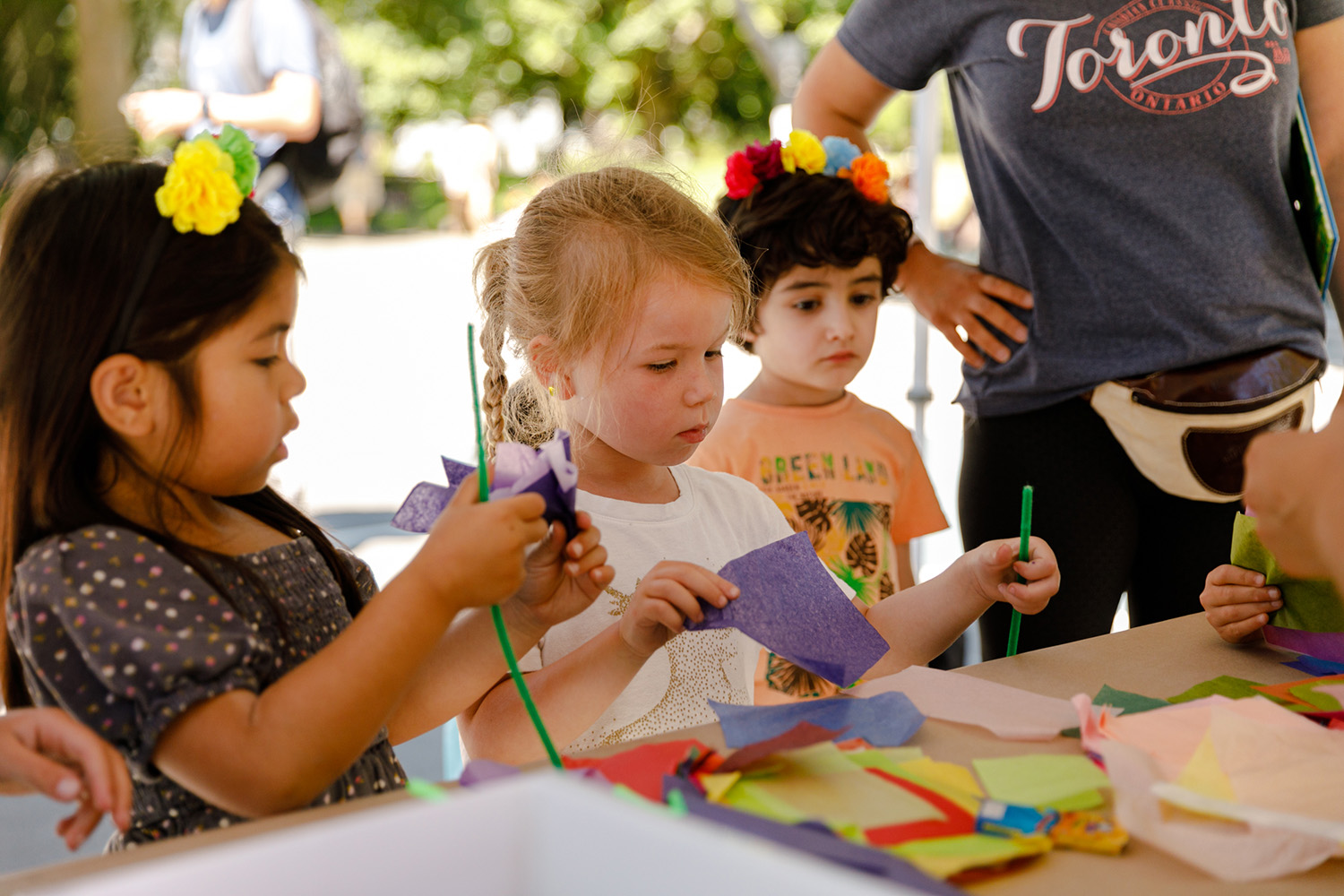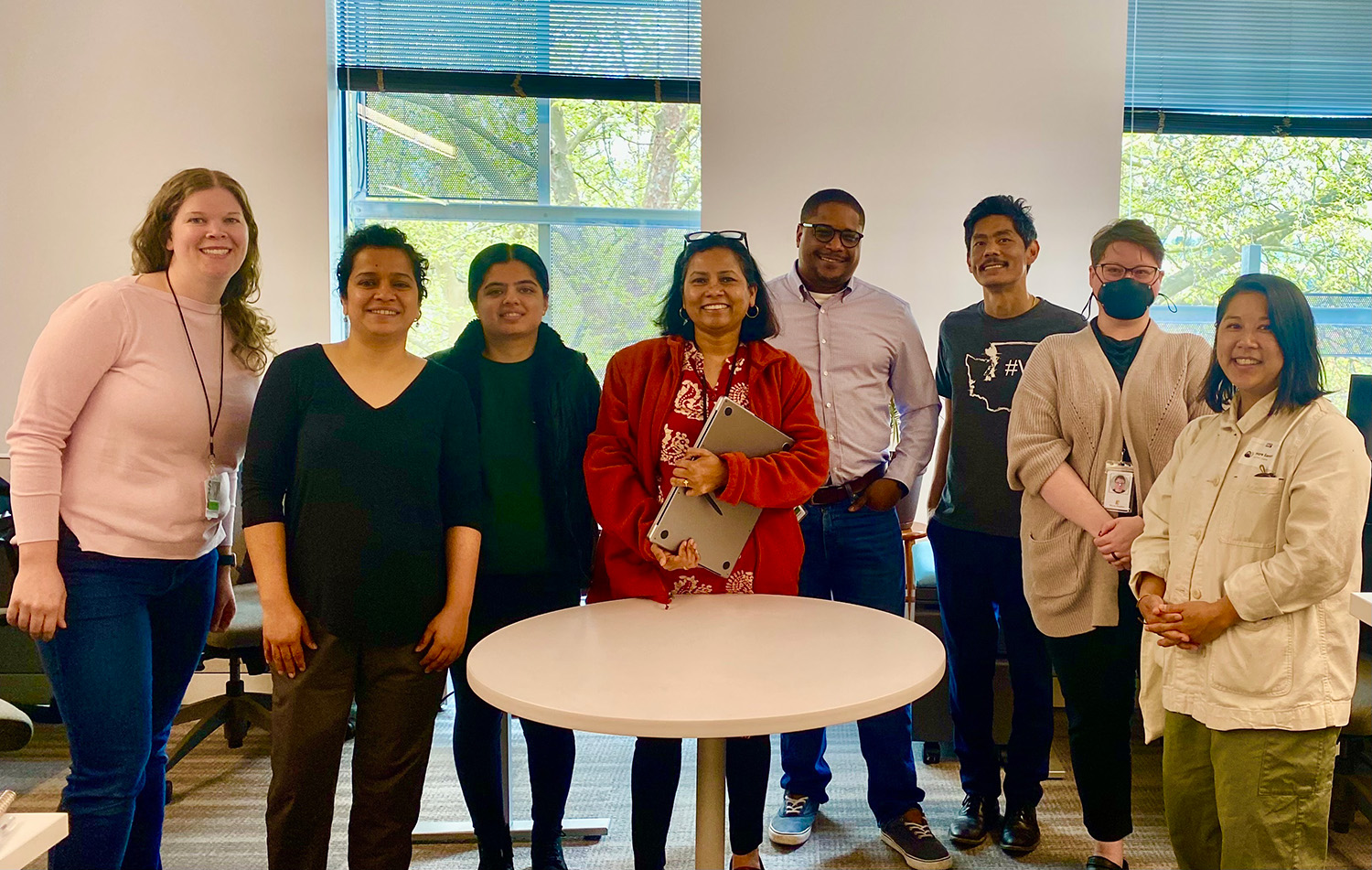 |
| Last season, Seattle Opera presented the world premiere of A Thousand Splendid Suns, an opera based on the bestselling novel by Khaled Hosseini. © Philip Newton |
In 2019, Seattle Opera embarked on a plan to address institutional racism and to engage the community in ways that centers People of Color within the art form and beyond. Soon afterwards, the company launched its Racial Equity Social Impact (RESI) plan. The plan established goals and initiatives designed to improve diversity, equity, and inclusion at Seattle Opera, the opera industry, and our community in general.
As we enter the third year of the plan, it’s our privilege to report the company’s progress. This report highlights new and ongoing initiatives, such as the Seattle Arts Fellows, Sensory Friendly and Relaxed Performances and Building for Equity. These and other projects reflect Seattle Opera’s commitment to all human difference and social identities, to fair and just practices, and to openness and belonging.
 |
| Maestro Jordan De Souza conducts the Seattle Opera orchestra in last season’s production of Tristan & Isolde. © Philip Newton |
Racial Equity and Social Impact
Strategic Priorities
- Formalize and implement racial equity and social impact practices and policies across all stakeholders and departments of the company.
- Increase the percentage of stakeholders who understand and participate in Seattle Opera’s racial equity and social impact work.
- Increase the company’s racial equity and ethnic diversity across all stakeholder groups to reflect the diversity of the Puget Sound region.
Good Neighbors
Tasveer, a Seattle-based organization that presents and produces South Asian film, art, and stories, has moved to the Opera Center, sharing office space with the Seattle Opera staff on the third floor. Tasveer’s relocation to the Seattle Center campus is possible through Building for Equity, a 4Culture/King County grant. Across the country, the resource divide between large and small arts institutions is large. Building for Equity is an initiative to lessen the gap and create a pathway to racial equity in cultural facilities funding. For the several years, Tasveer will host their annua film festival, film summit, and other events at the Opera Center.
“Programs like this one are a form of activism, leading to the creation of equitable systems that assist under-resourced organizations.” |
“The Opera Center is an amazing building. And everyone at the opera has been welcoming. The entire process of moving here was easy.” |
 |
| Dressed for the occasion, Seattle Opera staff had a fun time marching in Seattle’s pride parade. © Seattle Opera |
True Colors
Seattle Opera was among hundreds of local businesses, institutions, and organizations to celebrate our LBGQIA+ family members, friends, and neighbors during the city’s annual Pride Parade.
The Power of Partnerships
Seattle Opera is honored to have the following organizations as partners. Together, we strive to make Seattle more welcoming, creative, healthier, educated, and equitable for all.
Afghanistan Institute of Music |
Jazze’s Organic Afghan Fusion |
Refugee Women’s Alliance |
 |
| Each Seattle Parks performance of Frida Kahlo and the Bravest Girl in the World included lots of arts and crafts projects for families to do. © Seattle Opera |
On the Road Again
This spring, after a three-year absence, Seattle Opera’s School Opera Tour was on the road. The cast and crew of Frida Kahlo and the Bravest Girl in the World performed 51 times. The one act bilingual opera tells the story of Mariana, a young girl living in Mexico City who has her portrait painted by Frida Kahlo. The production crisscrossed the State of Washington, traveling to elementary in Port Angeles, Toppenish, Marysville, and other communities as well as schools in Seattle. Along the way, the tour stopped in 25 Title 1* Schools. Additional free, public performances took place at two Seattle city parks—Powell Barnett Park and Highland Park.
“The performance was truly a great community-building, schoolwide event, and our students thoroughly enjoyed seeing their culture and language represented.”
—Jennifer Ching, Teacher, Stevenson Elementary School
*Schools in which at least 40 percent of the students are from under-resourced families.
 |
| The 2023/24 Seattle Opera Fellows are (L to R) Stella Gonzalez, Lorin Green, Myah Rose Paden, and Tony Oteromarrero. © Jiyang Chen |
Seattle Arts Fellowship 2.0
The Seattle Arts Fellowship program recently concluded its second year. The program provides hands-on work and educational experiences to future arts administrators who identify as Black, Indigenous, or as a Person of Color. The year-long, paid fellowship is hosted by Seattle Opera, Seattle Symphony, Classical KING, and Pacific Northwest Ballet. This year’s cohort—Stella Gonzalez, Lorin Green, Myah Rose Paden, and Tony Oteromarrero—developed and implemented a variety of projects at their respective organizations. They also met local arts leaders, like Michael Greer, Arts Fund CEO; Vivian Philips, Founder of ARTE NOIR; and Robert Nellams, former head of Seattle Center.
“I think this fellowship has allowed me to explore talents that I hadn’t had the opportunity or the freedom to explore”
—Myah Rose Paden
 |
Refugee Assistance Supply Drives
Throughout the performances of A Thousand Splendid Suns, Seattle Opera collected donations to support local refugee families from Afghanistan. Personal care supplies, household items, and other essentials were donated by opera patrons, friends, and opera staff. At the end of the performance run, two van loads were delivered to World Relief Western Washington, an organization that provides initial resettlement services.
 |
Sensory Support/Relaxed Performances
Designed to address the differing needs of all patrons, Seattle Opera offered its first Sensory Friendly performance at McCaw Hall during our run of La traviata last season. The performance allowed all members of our community to have a wonderful, inclusive opera experience by offering extra supports to patrons with neurodiverse and physical needs. We encouraged everyone to enjoy the performance in whatever way was comfortable for them.
Features of a Sensory Friendly Show
- dimmed house lights,
- areas to use electronic devices,
- designated areas to move around,
- trained staff to help,
- sensory guidebooks,
- live performance feeds in the lobby,
- ability to go in and out of the auditorium with ease,
- talking was allowed.
“Having [autism and Tourette’s] makes it difficult to attend and enjoy things like this. Thanks to you all, me and my mom had an amazing date . . . [The accommodations were] enough to prevent tics for the entire performance as well as prevent anxiety that nothing bad was going to happen if I did so.”
–Relaxed Performance Audience Member
 |
Global Languages
The poet Henry Wadsworth Longfellow wrote, “Music is the universal language…” It’s an ideal that we fully embrace. However, English—the language of our supertitles and program book—is not universal. So, now we offer translations of opera synposes in multiple languages in McCaw Hall and online.
- Korean
- Spanish
- German
- Vietnamese
- Chinese (traditional)
- Somali
- Russian
- Tagalog
 |
| Ready for the party. Seattle Opera staff looking great for last season’s Big Opera Party! © Philip Newton |
Seattle Opera Staff & Board Assessment
As part of Seattle Opera’s continuing assessment of our progress towards the three Strategic Priorities, we surveyed our staff, board members, volunteers, and others. The results from our recent survey are below. The percentage change from the previous poll in 2019 is indicated inside the parentheses. One hundred sixty-six board and staff members responded. While the company is more diverse and has a better understanding of the importance of equity work, Seattle Opera realizes that considerable work to do. We look forward to continued learning.
Board Gender |
45% (+ 3%) female |
Staff Gender |
54% (+ 12%) female |
Board Race & Ethnicity |
BIPOC 24% (+ 12%) |
Staff Race & Ethnicity |
BIPOC 46% (+ 31%) |
Staff Self-Identification |
LGBQIA+ 30% (+ 5%) |
Board Self-Identification |
LGBQIA+ 8% (+ 4%) |
Board & Staff Understanding of Race Equity
- 86% (+ 20%) strongly or somewhat have a basic understanding of our RESI work.
- 70% (+ 31%) strongly or somewhat agree that their department/area is racially diverse and reflects the region’s diversity.
- 59% (+ 19%) strongly or somewhat agree the opera’s leadership reflects the region’s racial and ethnic diversity.
- 25% (+ 20) strongly agree that Seattle Opera’s mainstage creative teams reflect a broad diversity or races and ethnicities.
- 58% (+ 27%) strongly agree that Seattle Opera has a growing understanding of racism as a barrier to effective diversity and inclusion.
- 55% (+ 11%) somewhat or strongly agree that Seattle Opera seeks assistance on decision making from communities of color.
 |
| Tess Altivero (left) and Salome Jicia (right) starred our performance of The Elixir of Love, opening our 2022/23 season. © Philip Newton |
Artists Assessment
In 2022/23 we surveyed principal singers, supernumeraries, and creative team members involved in Seattle Opera productions. One hundred twelve artists responded (48%). Below are key findings.
Gender |
47% female |
Race & Ethnicity |
68% White |
Self-Identification |
LGBQIA+ 27% yes |
- 90% strongly agree that it is valuable for opera companies to examine and discuss the impacts of race.
- 53% have read Seattle Opera’s Racial Equity Social Impact plan.
- 47% have a basic understanding of Seattle Opera’s Racial Equity Social Impact plan.
- 47% know who to talk to at Seattle Opera if they experience/witness racism.
“In the few weeks I have been here, I have seen a great diversity of race and gender identities with everyone being treated fairly and with great respect.” |
“[As] a person of color I felt 100% invited, included, and welcome from even before I got here.” |
Learn more about Seattle Opera’s mission and vision as well as our commitment to equity at seattleopera.org/equity




No comments:
Post a Comment